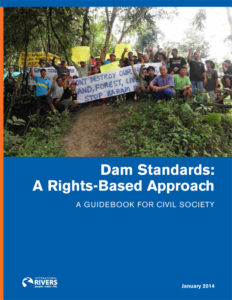Indigenous people comprise just 5% of the world’s population, but they steward some 80% of the world’s biodiversity. That’s not an accident. Though diverse in language, ethnicity and cultures, many indigenous groups have developed ways to live sustainably on their ancestral lands and waters over centuries or even millennia. Their worldviews often put the protection of vital resources – nature’s supermarket – above the profit motive, stemming from long-held cultural practices.
This has put many indigenous communities into direct, if unwanted, conflict with the forces of global capitalism. The results are devastating:
Indigenous communities are being displaced from their lands at alarming rates, and environmental defenders – many of them indigenous – face rising levels of violence.
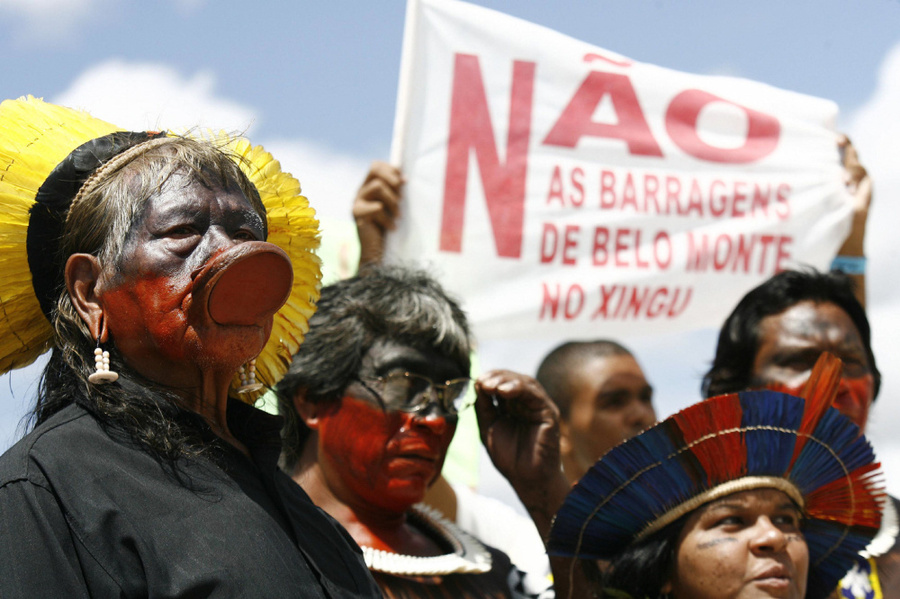
Our Work to Supporting Indigenous Peoples
Indigenous people’s rights are central to our work. At a time when biodiversity is in free fall and climate change-induced extinctions loom, restoring indigenous land and water rights is our best hope for restoring balance.
We work with indigenous groups in Latin America, Southern Africa, South Asia and Southeast Asia, amplifying their voices and supporting their movements. We promote the right to free, prior and informed consent (FPIC) and indigenous rights over their lands, territories and cultural autonomy. We support and promote consultation protocols as a means through which indigenous communities can uphold their rights. And we strengthen indigenous communities’ capacity to recognize and advocate for their rights, working alongside indigenous-led organizations and movements to elevate and disseminate their narratives.
Learn More
- Amazon’s Belo Monte dam cuts Xingu River flow 85%; a crime, Indigenous say (Mongabay, 2021)
- Whose Water? A Comparative Analysis of National Laws and Regulations Recognizing Indigenous Peoples’ and Local Communities’ Rights to Freshwater (2020)
- Serious Damage Tribal Peoples and Large Dams (Survival International, 2010)
Latest News
- PRESS RELEASE | Biocultural Community Protocol (BCP) of the OvaHerero of the Kaokoland in Angola and Namibia (the Ovahimba) gives recognition to Indigenous Peoples
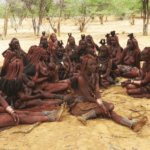 FOR IMMEDIATE RELEASE – June 12, 2024 Karipetua Uarije, representative of the OvaHerero Biocultural Community Protocol Custodian Committee, kuarije@yahoo.com Natasha Prince, Natural Justice, natasha@naturaljustice.org Siziwe Mota, International Rivers, smota@internationalrivers.org Opuwo, Namibia – … Read more
FOR IMMEDIATE RELEASE – June 12, 2024 Karipetua Uarije, representative of the OvaHerero Biocultural Community Protocol Custodian Committee, kuarije@yahoo.com Natasha Prince, Natural Justice, natasha@naturaljustice.org Siziwe Mota, International Rivers, smota@internationalrivers.org Opuwo, Namibia – … Read more - Civil Society Organizations continue to call for more effective consultation processes from the Inter-American Development Bank
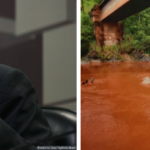 Yesterday, International Rivers joined organizations from Latin America and the United States with a new open letter to the president of the Inter-American Development Bank (IDB), Ilan Goldfajn. The letter … Read more
Yesterday, International Rivers joined organizations from Latin America and the United States with a new open letter to the president of the Inter-American Development Bank (IDB), Ilan Goldfajn. The letter … Read more - Indigenous leaders discuss rights and river protections at the Terra Livre Camp
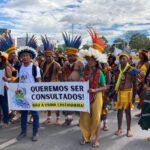 By Flávio Montiel, International Rivers’ Brazil Manager Brasília, April 25, 2023 – 19 years ago, 300 indigenous leaders held the first Terra Livre Camp (ATL) in Brasilia. It was the … Read more
By Flávio Montiel, International Rivers’ Brazil Manager Brasília, April 25, 2023 – 19 years ago, 300 indigenous leaders held the first Terra Livre Camp (ATL) in Brasilia. It was the … Read more - WATCH: International Rivers’ Monti Aguirre speaks about protecting rivers and human rights at UN Water Conference
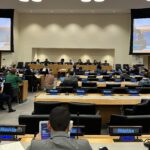 Monti Aguirre, International Rivers’ Latin America Program Director spoke at the Informal Special Event – Reducing inequalities – implementing Human Rights about the harmful impacts dams have on human rights … Read more
Monti Aguirre, International Rivers’ Latin America Program Director spoke at the Informal Special Event – Reducing inequalities – implementing Human Rights about the harmful impacts dams have on human rights … Read more

